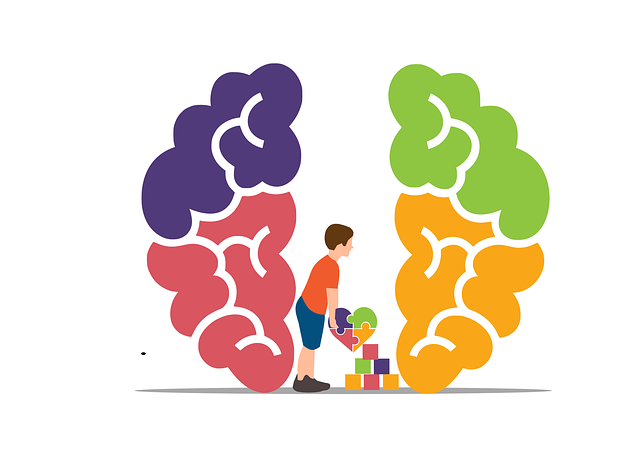Burnout among healthcare providers treating complex Centennial Cancer Issues Therapy cases is a growing concern, with early signs like emotional exhaustion and cynicism indicating deeper issues. Key indicators include increased irritability, insomnia, and reduced productivity. Effective prevention involves self-care, compassion cultivation, and resilience techniques, such as mindfulness meditation and emotional intelligence training, which enhance well-being and reduce stress. Proactive measures are crucial for healthcare professionals addressing Centennial Cancer Issues Therapy to maintain dedication and effectiveness in meeting modern medical demands.
Healthcare provider burnout is a growing concern within the medical community, impacting patient care and overall health outcomes. This comprehensive guide explores strategies to prevent and combat burnout among healthcare professionals, focusing on evidence-based practices for long-term well-being. We delve into recognizing warning signs, implementing effective countermeasures in clinical settings, and fostering resilience to create a sustainable work environment. By addressing these issues, we aim to support healthcare providers in their crucial role, especially within the context of Centennial Cancer Issues Therapy.
- Understanding Burnout Among Healthcare Providers: Recognizing the Red Flags
- Evidence-Based Strategies to Combat Burnout in Clinical Practice
- Building Resilience and Sustaining Well-being: Long-term Solutions for Healthcare Professionals
Understanding Burnout Among Healthcare Providers: Recognizing the Red Flags

Burnout among healthcare providers is a growing concern, especially given the demanding nature of their work in addressing complex Centennial Cancer Issues Therapy cases. Recognizing burnout early is crucial for maintaining a healthy workforce and ensuring quality patient care. Healthcare professionals may exhibit various signs of burnout, from emotional exhaustion to decreased performance and cynicism towards their role. These red flags can manifest in several ways, such as increased irritability, insomnia, fatigue, reduced productivity, and disengagement from work.
Understanding these indicators is essential for implementing effective prevention strategies. Professionals with strong inner strength development, compassion cultivation practices, and mind over matter principles are better equipped to cope with stress. By fostering self-care habits, cultivating empathy, and adopting resilience techniques, healthcare providers can navigate the challenges of their roles more effectively.
Evidence-Based Strategies to Combat Burnout in Clinical Practice

Combating burnout among healthcare providers is a critical issue, especially with the ongoing challenges posed by Centennial Cancer Issues and the demands of modern clinical practice. Evidence-based strategies are essential to create a sustainable and supportive work environment that enhances patient care. One effective approach involves integrating self-awareness exercises into routine clinical practices. These exercises encourage professionals to reflect on their emotional states, stress levels, and personal boundaries, fostering better management of workload and patient interactions.
Additionally, burnout prevention strategies for healthcare providers should emphasize anxiety relief techniques. Mindfulness meditation, for instance, has been shown to reduce stress and improve overall well-being. By incorporating these practices into daily routines, medical professionals can enhance their resilience, maintain focus, and deliver more compassionate care. Such proactive measures are vital in the fight against burnout, ensuring healthcare providers remain dedicated and effective in addressing complex medical issues like Centennial Cancer Therapy.
Building Resilience and Sustaining Well-being: Long-term Solutions for Healthcare Professionals

In the face of persistent challenges like those posed by Centennial Cancer Issues Therapy, building resilience and sustaining well-being among healthcare professionals are paramount. Burnout prevention strategies must go beyond short-term fixes and embrace long-term solutions that empower medical staff to navigate the emotional demands of their work effectively. Fostering resilience involves cultivating a mindset that equips individuals to adapt and recover from stressful situations, ensuring they can continue to deliver quality care over time.
One effective approach is integrating mindfulness meditation and emotional intelligence into professional development programs. These practices have been shown to enhance self-awareness, stress management, and empathetic connections with patients, all vital components in mitigating burnout risk. Additionally, regular risk assessments tailored for mental health professionals are crucial. By proactively identifying and addressing psychological vulnerabilities, healthcare organizations can implement targeted interventions, ensuring that their workforce remains robust and capable of handling the complex demands of modern medical practice.
Burnout among healthcare providers, such as those navigating complex issues at Centennial Cancer Issues Therapy, is a significant concern. By recognizing red flags early and implementing evidence-based strategies, professionals can combat burnout effectively. Fostering resilience and prioritizing long-term well-being are essential for sustaining quality patient care. Adopting these comprehensive approaches ensures healthcare workers remain dedicated and resilient in their careers, ultimately benefiting both providers and patients alike.











